How much do immigrants save with SEPA transfers? - Tafa: In many cases, the cost will be almost zero
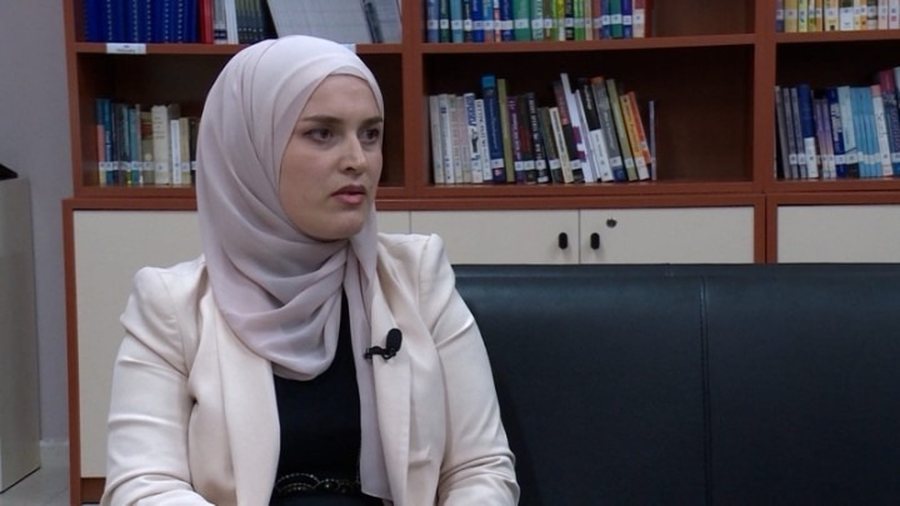
Albania was the first country in the region to apply to become part of the Single Euro Payments Area (SEPA) and the first country to join along with Montenegro.
On April 16, about a week after individual application, commercial banks would also be accepted into SEPA, paving the way for cross-border payments in euros starting on October 7. Albanian immigrants, who bring millions of euros each year to their families in Albania, are just one of the categories that will benefit from the implementation of this system.
"If an Albanian citizen living in Greece wants to deposit an amount of 500 euros with his family, in a normal bank transfer, this would cost him between 20-50 euros per transfer. This difference depends on different banks, as well as on the implementation and intervention of intermediary banks that transfer these funds from the person to his family, which means that we have an average cost of about 40 euros, so from 500 euros, his family will receive no more than 460 euros or in the other case the person will have to deposit an additional 40 euros so that the family receives the full amount of 500 euros ," said pedagogue Besarta Tafa.
According to estimates by the Bank of Albania, savings from the implementation of SEPA could reach up to 20 million euros in the first year, to increase thereafter.
"While if we were to apply SEPA, the cost in many cases would be zero, almost zero, and the maximum that individual transfers would reach is up to 3 euros per transfer."
Tafa also emphasized that in order to make a SEPA transfer, both the sender's and the beneficiary's accounts must be in euros, while commercial banks can also set a ceiling on the amount that can be transferred through this scheme.
Full interview
Besarta Tafa, Teacher
Albania's participation in SEPA on April 16 marks a very important economic event for Albania, but normally, like any other innovation, the SEPA case also requires the necessary infrastructure to be laid in which this system will operate. More specifically, first, the banking system must be adapted to the requirements of SEPA, so that every transaction is carried out according to European Union standards. Second, regulatory compliance is necessary, which means that all transactions and transfer activities must be carried out in accordance with European Union rules, both for money transfers, as well as for the method of financial reporting, as well as for risk management. Third, a very important element is the testing of the system. Given that this system will include many European countries and many financial and banking institutions, it takes a relatively long time to carry out the necessary tests to ensure that the system will function without interruption and with high quality.
From a financial point of view, the application of the system is costly. Not only to update the entire system in the IT of Albanian banks, but also to train human resources to use the system and carry out transactions through this system and all this time of several months will be necessary to make a normal distribution of these capitalization costs, which should not weigh on a certain period and what is more important, the system should pass in a phased period, which means that the update and application of the system is best carried out step by step in order to enable an easier transition to avoid any consumer dissatisfaction.
So, this entire process, which is normally technical, is estimated by researchers to require a period of several months from acceptance to application of the system by Albanian banks and other Albanian institutions.
Cost of transfers
Let's take an example, if an Albanian citizen living in Greece wants to deposit an amount of 500 euros with his family, in a normal bank transfer, this would cost him from 20-50 euros per transfer. This difference depends on different banks, as well as on the implementation and intervention of intermediary banks that transfer these funds from the person to his family, which means that we have an average cost of about 40 euros, so from 500 euros, his family will receive no more than 460 euros or in the other case the person will have to deposit an additional 40 euros so that the family gets the full amount of 500 euros.
In the case of other methods of money transfers, they apply a percentage of about 5%-10% of the transferred amount, which in this case would again be 25-50 euros per transfer, again we have a cost, an average of 40 euros depending on the amount to be transferred to the recipient or the one who will benefit from this income. Whereas if we apply SEPA, the cost in many cases will be zero, almost zero and the maximum that individual transfers reach is up to 3 euros per transfer. So we have a significant reduction, about 40 euros for each transfer. This makes transferring money much simpler, easier and with a relatively almost zero cost.
Making a SEPA transfer
A SEPA transfer is just a click away. SEPA transfers can be made both through bank counters, as well as through electronic banking or phone applications that each bank has its own. All you have to do is log in to the bank application, with your credentials and access your bank account in euros, so it should be noted, the bank account of the sender, as well as the beneficiary, will definitely be in euros. The only element you will have to enter is the name of the beneficiary, the IBAN of the beneficiary, and the amount in euros that you would like to transfer.
All we have to do is click on approve the transfer and the transfer goes through in real time. For fast SEPA transfers, it happens instantly, for normal transfers, one to two business days is enough.
Limitations on the amount of transfers
SEPA itself as a system does not apply any limit on the amount of funds to be transferred between banks. The only limit that can be set is by banks and different banks have different limits in accordance with the law against money laundering and the law against terrorism. They also set these limits to enable the management of various risks that are associated with the banking system and the financial system, especially that of remittances. But there are no limits in the system itself, in SEPA. What is worth mentioning is that in the case of simple individual transfers, there is no need for additional documentation, a simple description of the method of transfer to be carried out is enough, while for individual-business or business-business transactions and in large amounts, necessary supporting documentation will be needed that describes the reason for sending this transfer, or this payment. So, it is practically like making a transfer within the country or within the bank.
Benefits for businesses and other sectors
Businesses have multifaceted profitability. First, we can say that one of the real and most tangible benefits is the significant reduction in costs. As we mentioned above, transactions via SEPA have a cost from zero to 3, the maximum can go up to 5 euros per transaction. Taking business data for 2023, 2024, as well as bank data on transfers and transfer costs of these businesses in this period, we can talk about a saving of millions of euros per year. Another benefit, of course, in addition to the financial and cost, is a reduced time in making payments and transfers from business to business between different banks. This reduced time will help banks, as well as businesses, especially businesses, to better manage their cash flow, as well as their liquidity. Third, the benefit is at a national level. Certainly, the application of SEPA fees would be an added value for Albania and would rank it among the first, let's say, or financial leaders in the region, in terms of making transfers in this form.
Security, transparency and profitability are very high. Also, risk, risk management and risk avoidance that may come from exchange rates or from various potentials is at a very high level.
Almost all business sectors will benefit from this, starting from trade, such as wholesale, retail, e-commerce due to real-time payments and collections and at a minimized cost. Construction will also have a very big benefit in terms of importing raw materials from European Union countries, liberal professions and services, such as financial, IT and various services provided in European Union countries, will definitely have a big benefit, as they will be able to receive payments without additional costs and with a greatly reduced time. Also, education and other sectors will have a very high profitability, due to the reduced time and also the minimal cost.
Albania and SEPA
This means a lot for Albania. First, Albania, being the first to be accepted into SEPA in the Balkan region, is a financial leader in the region, in terms of trade relations with the European Union, but not only, it will also attract foreign direct investment, but it is worth noting here that in addition to the application of SEPA standards, a very attractive fiscal policy will be needed, in order to be able to make maximum benefits from foreign direct investment possible. Second, since SEPA includes those countries that operate financially with European standards, this means a lot for Albania. It means that its banking and financial system is modernized and technologically advanced, this means that our financial system is safe and transparent, and it also means that our system best applies European standards.
But not only that, since payments and transfers are made in the euro, this will enable Albania to undergo a simple transition to using the single euro currency, taking a further step towards Albania's integration into the European Union.
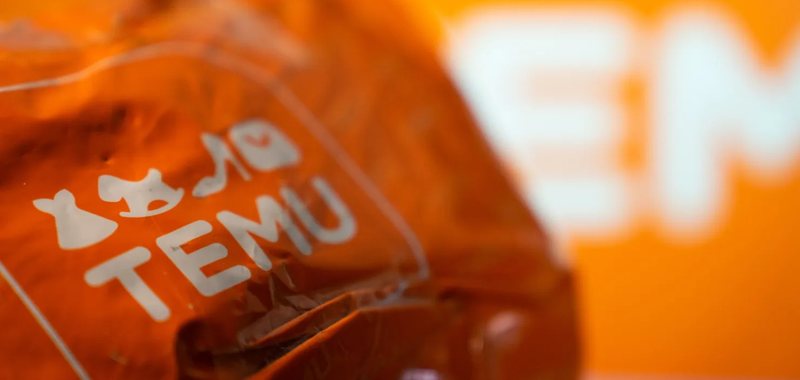
US, Temu bans shipments from China - Elimination of the "de minimis" rule changes the platform's strategy
Chinese low-cost retailer Temu changed its business model in the US as the Trump administration's new rules on low-value shipments took effect. In recent......

"Albania has left the region behind" - Rama: We are the country with the highest GDP growth in the Balkans
Prime Minister and Socialist Party leader Edi Rama, during a meeting with residents of the city of Korça, shared some of the main achievements of his......

"Only 100 days to transform Albania!" - Berisha, at the closing meeting of the electoral campaign for ''PD-ASHM'' in Burrel
During the closing meeting of the electoral campaign for ''PD-ASHM'' in Burrel, Sali Berisha asked every Albanian for just 100 days to transform......
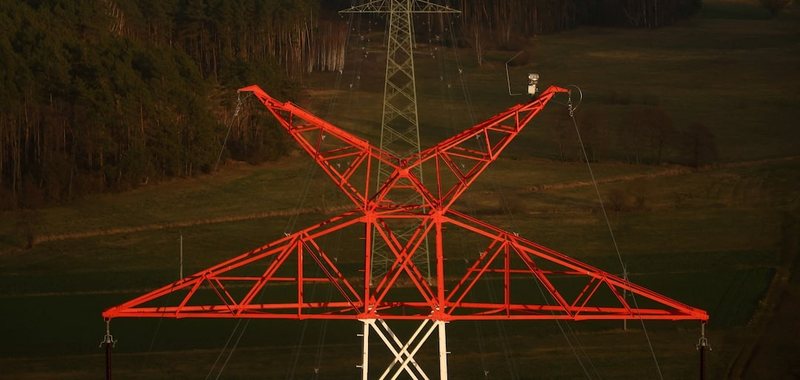
Increasing cybersecurity in energy - ERE changes rules, obligations for ISO standard within 18 months
The Energy Regulatory Authority has approved changes to the regulation on cybersecurity of critical infrastructures in the energy sector. The changes......

How many Diaspora Votes have been cast in the CEC? - Greek immigrants must send in their electoral envelopes by May 6th
The number of voters from abroad is 245,935 in total, and thus, the same number of envelopes were sent, while 221,653 envelopes were received by voters, and......

Trump's tariffs "threaten" the Italian wine industry - Domestic revenues could fall by over 320 million euros per year
US tariffs have cast a shadow over the Italian wine industry, with domestic exporters calling for swift action from the Italian government and the European......
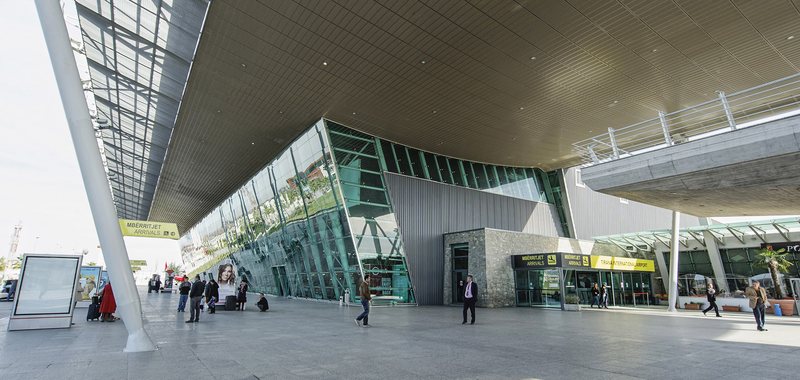
European Political Community Summit in Tirana - Rinas "Mother Teresa" Airport, with important announcement
On May 16, the European Political Community Summit will take place in Tirana, where heads of state from many European Union countries are expected to......
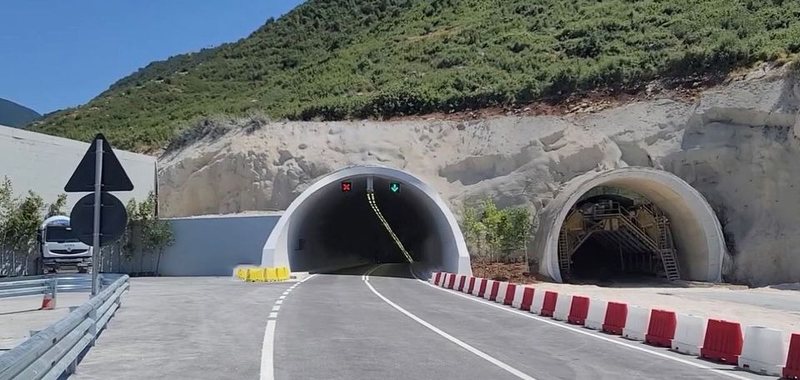
230 million lek for the Llogara tunnel - ARRSH announces the company that will be responsible for safety and maintenance
With a bid of around 230 million lek, the Albanian Road Authority has announced the winning company for the maintenance of the Llogara tunnel for the next 4......


















